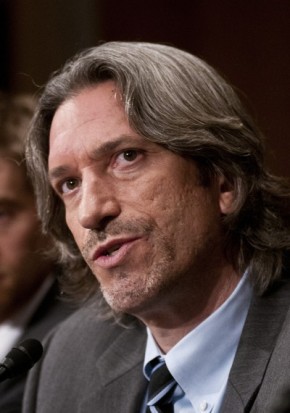Prendergast calls for new policy for Sudanese crisis
March 7, 2013 (NEW YORK) – Human rights activist and co-founder of the Enough Project has called for a new international policy to settle the ongoing crises in Sudan saying that partial solutions have failed to bring peace and democracy in the east African nation.

The discussion was moderated by David L Phillips, the Director of the Program on Peace-Building and Rights. Ahmed Hussain Adam, Columbia University’s Visiting Scholar and the co-Chair of the Two Sudans Forum provided a commentary on Prendergast’s remarks on the state of affairs in Sudan.
In his opening remarks, David warned that the crisis in Sudan is multi-dimensional and has reached a critical phase that will undermine the regional and international peace and security.
He went further to point out that it is crucial that the US and the international community should help the Sudanese to find an exit strategy.
Prendergast called for a new international policy to end the different crises in Sudan, stressing that Doha document for Peace in Darfur had failed and there is no real political process to end the 10-year conflict in western Sudan.
“The government is just trying to get some small groups and buy them off and divide the armed movements and the crisis continues! It is time for new international policy on Sudan”, he said.
Prendergast also hailed the signing of the New Dawn charter in January of this year by the different opposition forces and termed it as a positive step forward for democratic change and real reform in Sudan.
He further called upon the US administration to engage seriously with the rebel umbrella Sudanese Revolutionary Forces (SRF) and other New Dawn forces from the political parties and civil society groups.
US President Obama’s envoy for the two Sudan, Princeton Lyman supported the DDPD and called on the rebel groups to join the Doha process. He also said the SPLM-N had to hold separate talks with the Sudanese government to implement the remaining provisions of the Comprehensive Peace Agreement signed in 2005.
Prendergast, told the audience that he was hopeful that the new US foreign policy team will put Sudan as priority.
He said, the new Secretary of State John Kerry is a very experienced US official on foreign policy and, therefore, he understands Sudan and what needs to be done. Prendergast revealed that a new envoy for Sudan will be appointed.
Sudan, which is one of the areas of interest for the American administration, is experiencing different conflicts in Darfur, South Kordofan and Blue Nile. Further, the east African country has had tense relations with its southern neighbour since South Sudan’s secession in July 2011.
John Prendergast in his remarks highlighted that tat he core of the Sudan’s problems is a crisis of governance and the concentration of power and wealth in the hands of a small group of people.
He warned that the situation may lead to more fragmentation of what remains of Sudan – now the third largest country in Africa – and called for the crisis to addressed genuinely and holistically.
He further underscored that, President Omar al-Bashir and few generals around him are controlling the fate of the millions of Sudanese without having real solution to the Sudan crisis.
“Bashir is very scared to leave power, he doesn’t trust his regime leaders and there is a dangerous power struggle and division within the regime, just like any regime that is desperate because is heading to its demise”, he said.
Regarding the difficult humanitarian situation in the SPLM-N controlled areas in South Kordofan and Blue Nile, Prendergast narrated what had seen during his trip to South Kordofan last year.
He spoke about what he witnessed there saying that the humanitarian and security situations are worsening every day, tens of thousands of people cannot get any food, shelter or medicine due to the lack of humanitarian aid.
Bashir is denying access to the International humanitarian organisations to provide assistance to these needy people, he further said.
“This situation is not acceptable. You can’t gamble on people’s lives”, he added.
The chair of the Two Sudans Forum, Ahmed Hussein Adam, in his concluding remarks said that the international community failed to stop the unfolding genocide in Darfur instead, they encouraged Bashir to create similar situations, in South Kordofan and the Blue Nile, he emphasised.
Ahmed further said that the joint African Union United Nations Mission in Darfur (UNAMID) has failed and has submitted to the manipulation tactics of the regime. He also said that the UN Panel of experts on Sudan is not impartial and has been working to please and appease Khartoum and not to antagonise Russia and China.
“It is [the] Panel that has been working for the oppressors and not for the oppressed, therefore, it failed in its UNSC mandate”, he said.
(ST)
